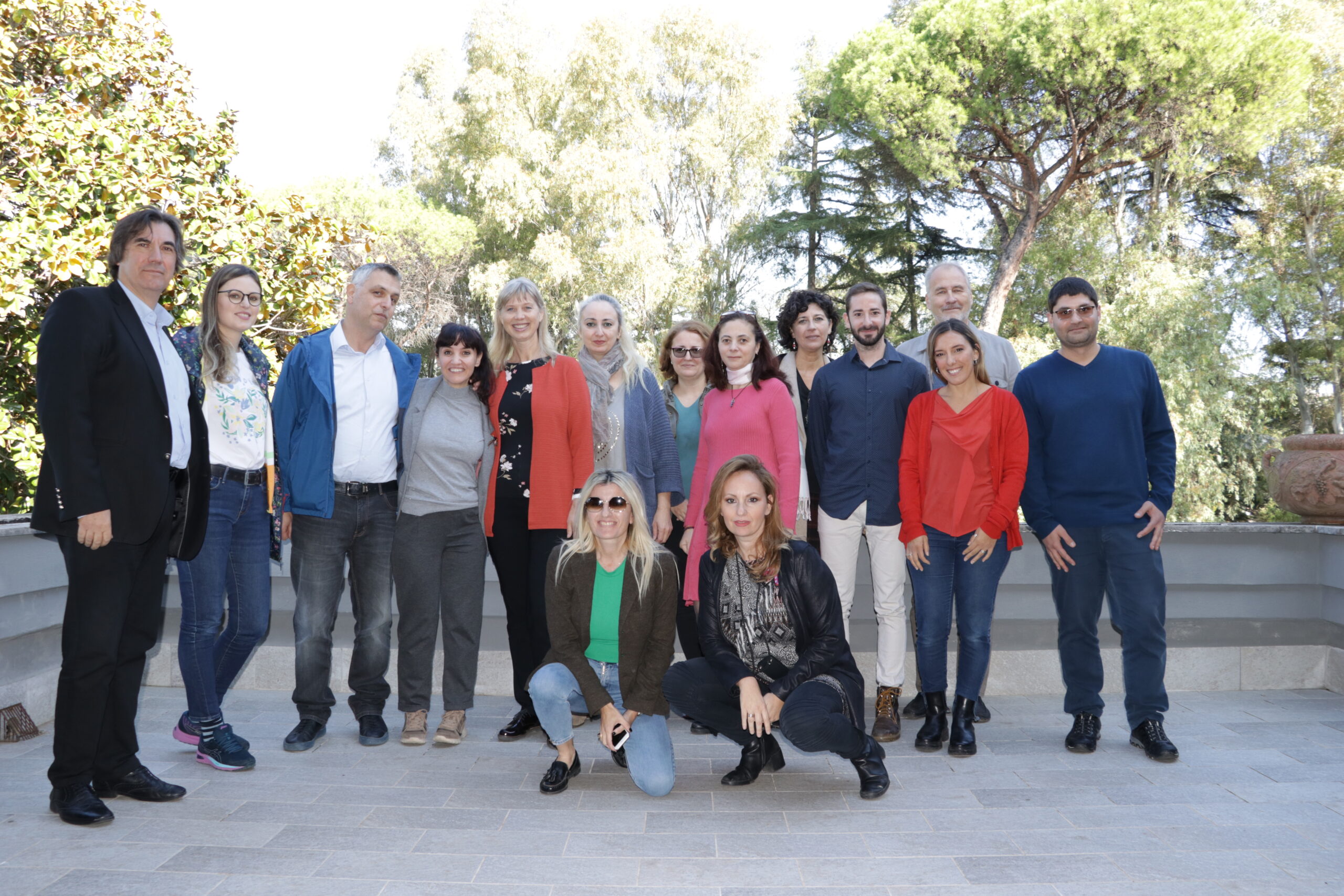Last November 11th, Digitex consortium met in Rome for its last meeting on site.
The meeting began with INCDTP, the project coordinator giving to the rest of the partners some technical and financial indications as the partnership will start working on the conclusion of the project the following weeks.
Then, AEI Tèxils and Cre.Thi.Dev. presented the work done and the Project performance on its aim for disseminate its goals, outputs, and activities as well as its internal quality assessments.
Then, each partner responsible of an output presented their status and gave final guidelines to finalise them. And the main conclusion, after all partners exposed, is that after two years of project duration, Digitex consortium achieved all the goals set on the beginning.
In first instance, an e-learning platform has been designed and developed. Partners agreed on the content and the structure it would be organised and uploaded it in this virtual and open source, where students and any other stakeholder interested in smart and electronic textiles can do the training.
Then, the consortium succeeded in the creation of a book about “Medical, sensorial and protective textiles development in the context of the European economy and digitalization”. This book compiles relevant information about smart and electronic textiles and it has been created through partners’ investigation. It represents another source that is freely available to anyone that needs to expand their knowledge about the application of smart textiles in that field.
Furthermore, the partners elaborated a field research that compiles several sources that can be used from a consultive tool about generic aspects of e-textiles and related materials to a more deepen tool, that provides the lecturer with more technical data.
With all those outputs and content created, the partnership organised a training school for students coming from the university participant partners, where this content was taught through virtual and dynamic way. It took place in October 2022, in Athens, and students got in touch with the online content previously and once in Greece, they would receive some lessons, work in small teams, and apply the learning acquired.
Finally, and after this methodology and content test were done, the consortium worked on a book of best practices about “Smart sensors based textiles from production management to end-user”. This book contains wide and useful information related on the design, implementation and assessment of electronical textiles and will be an excellent tool for both teachers and students within the advances textile materials sector.
During the next months, the partnership will meet virtually to conclude remaining tasks and management aspects.


Recent Comments